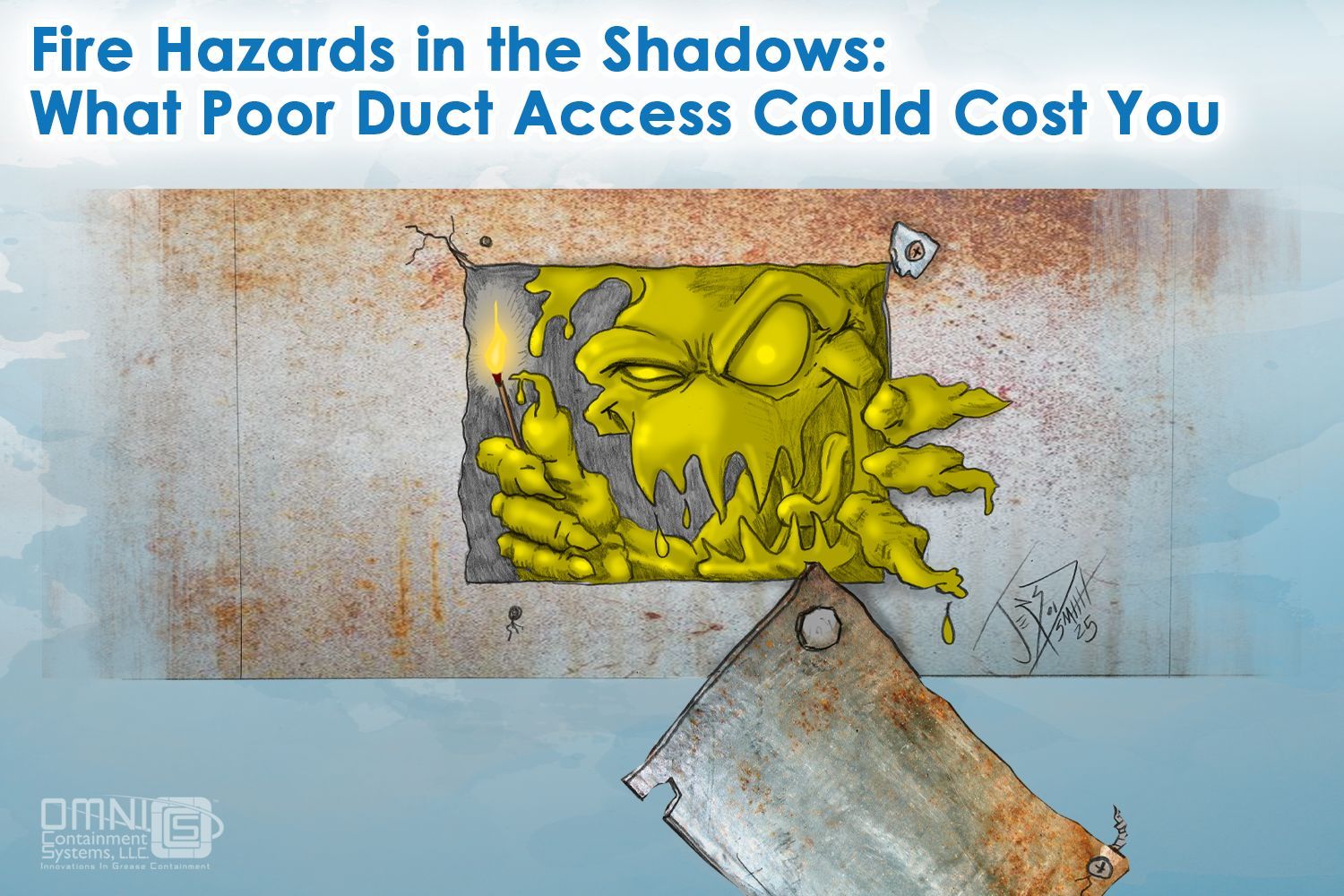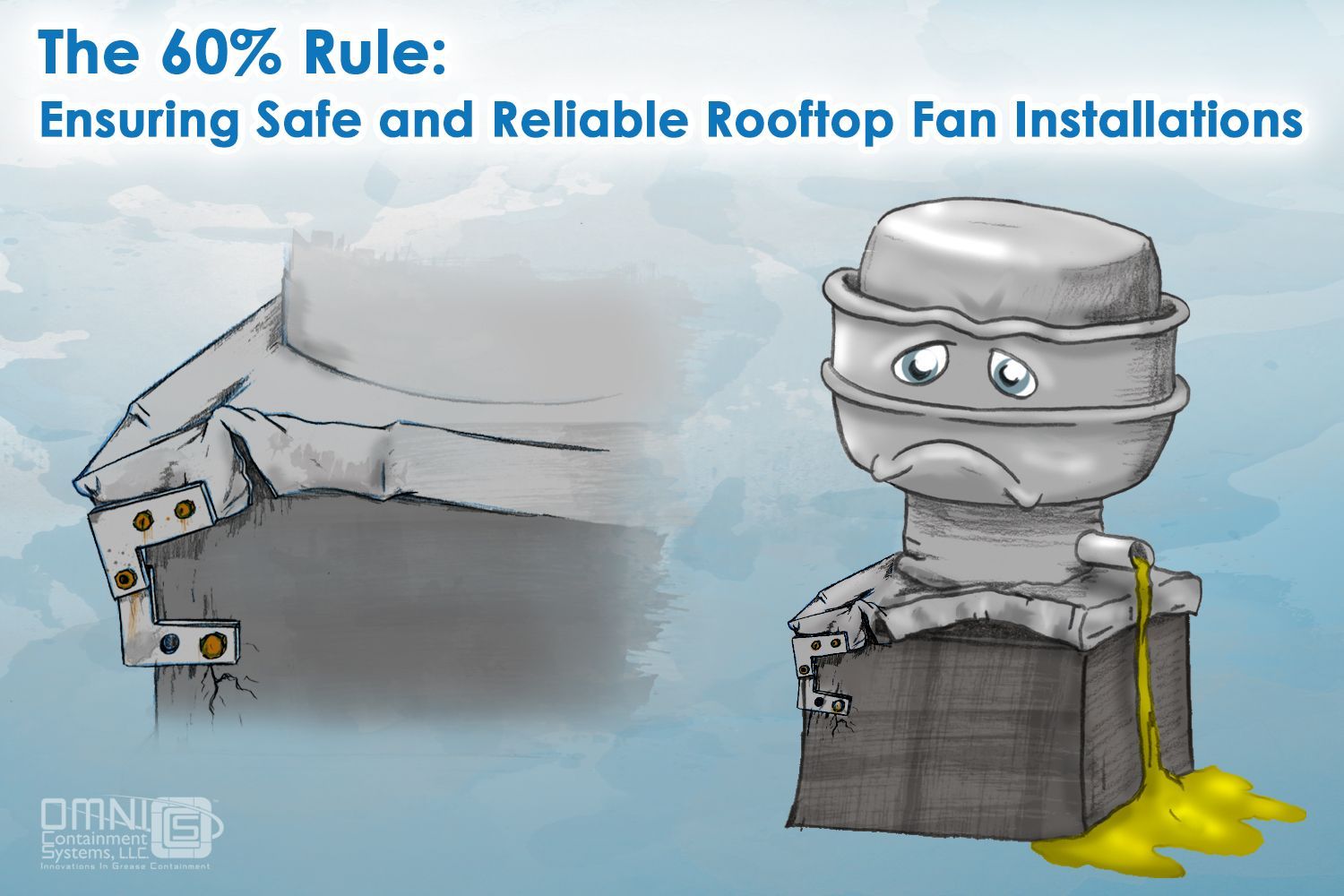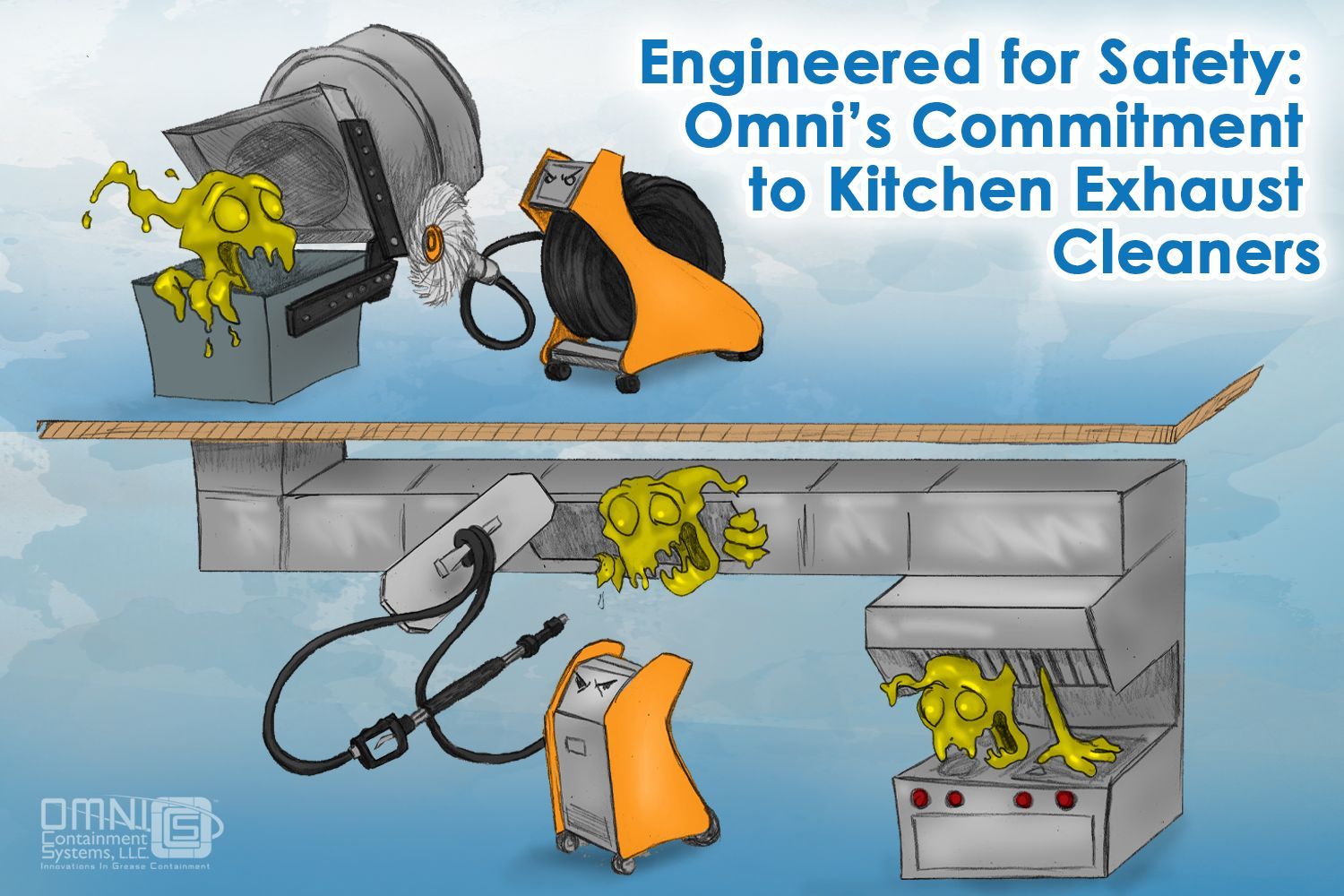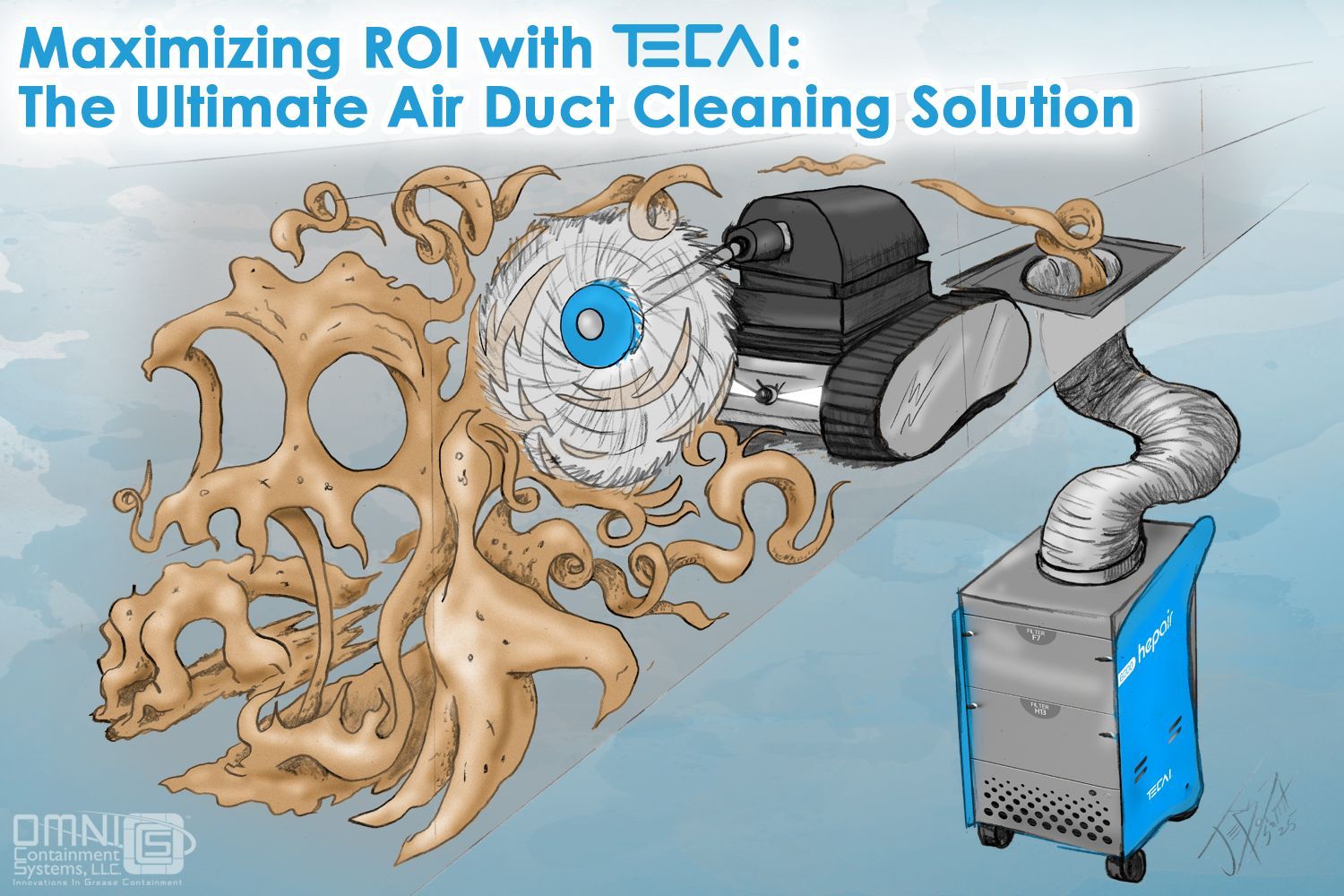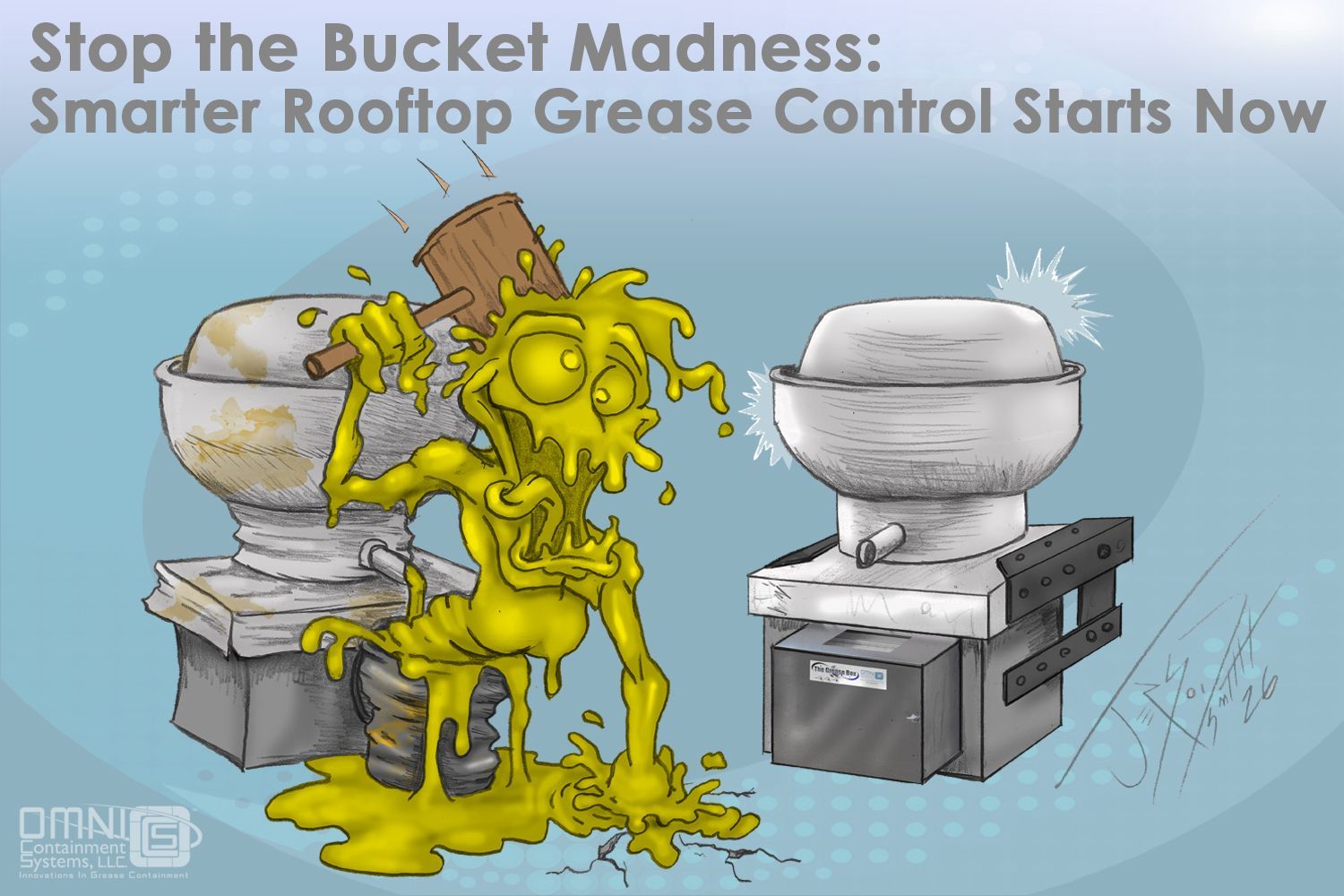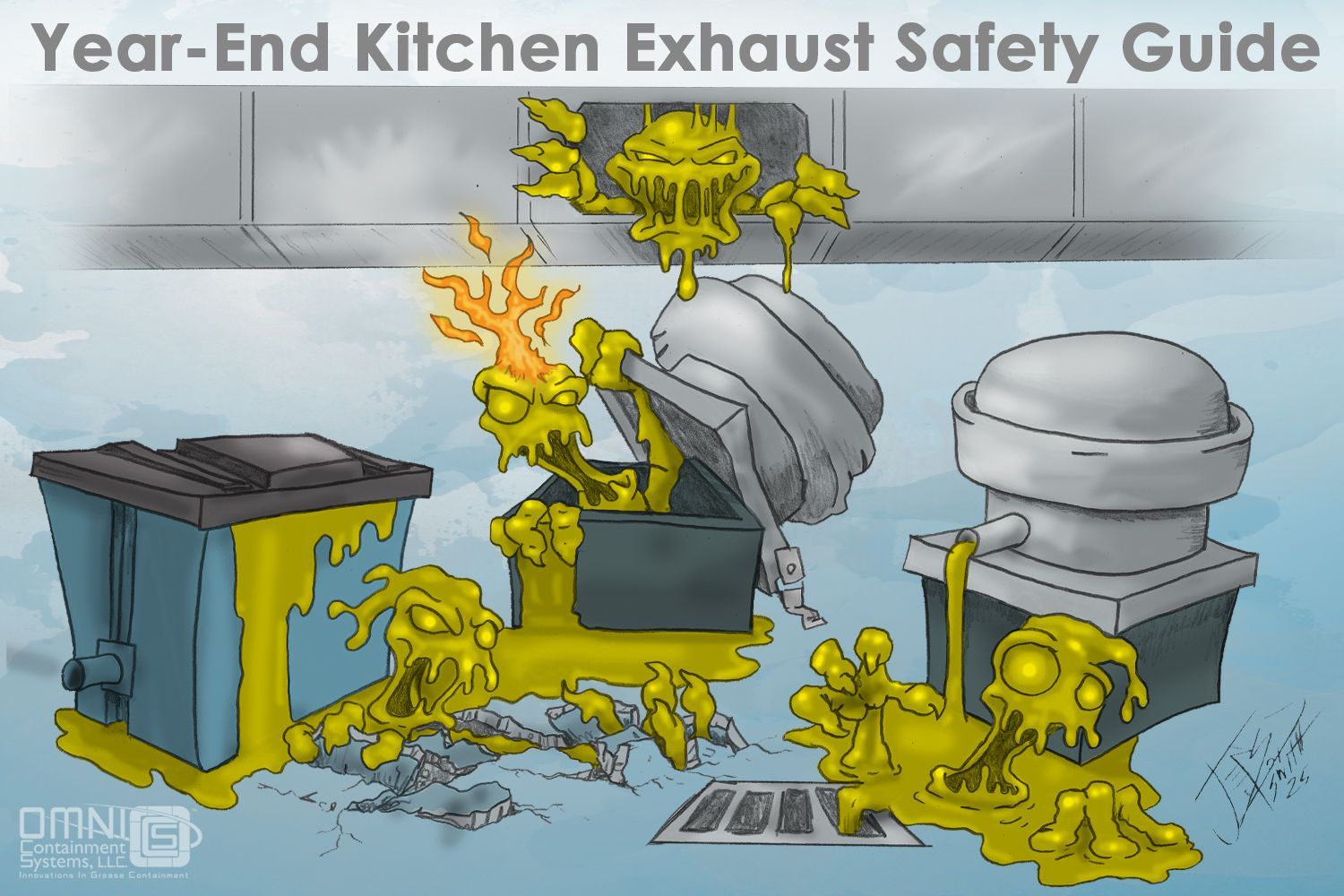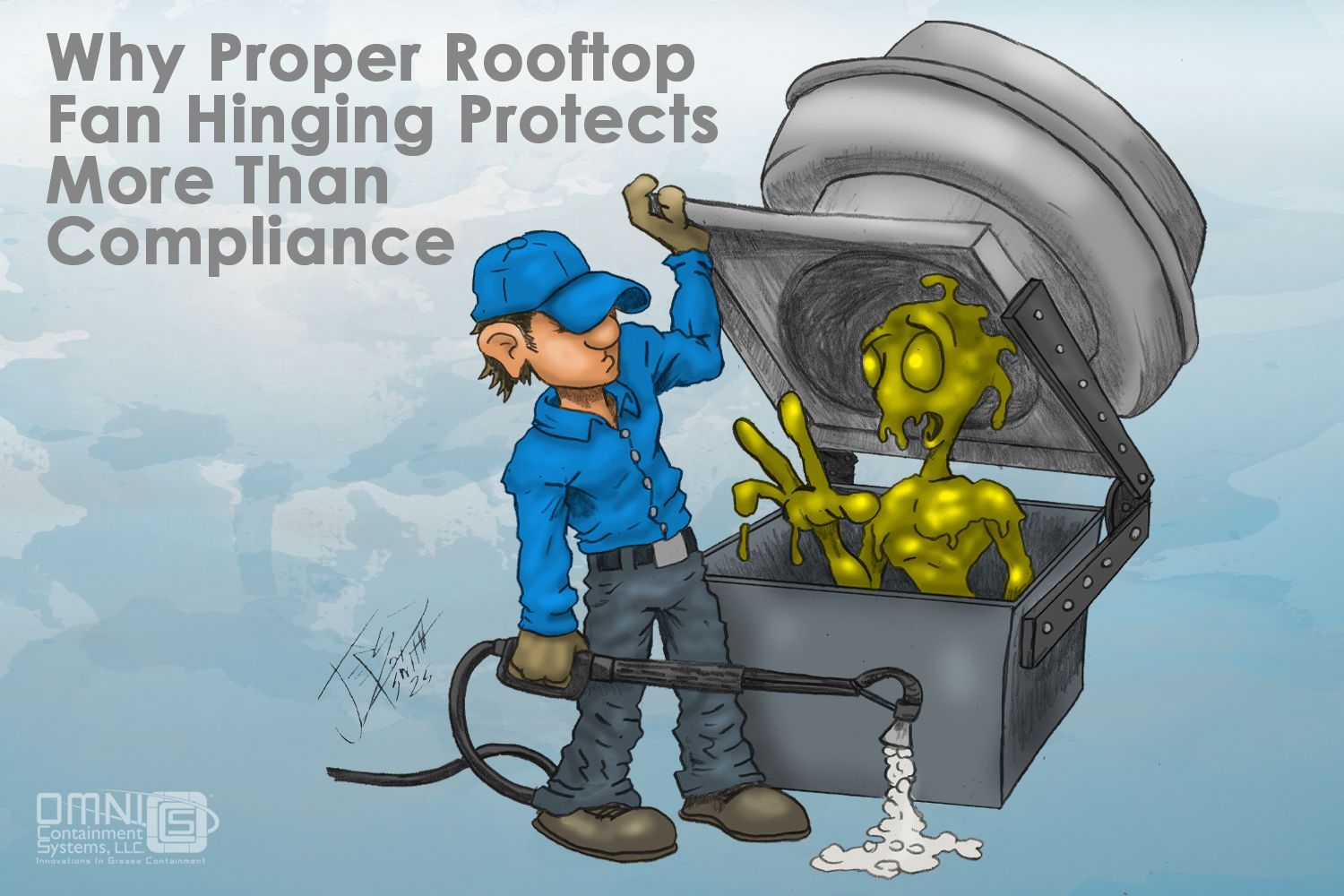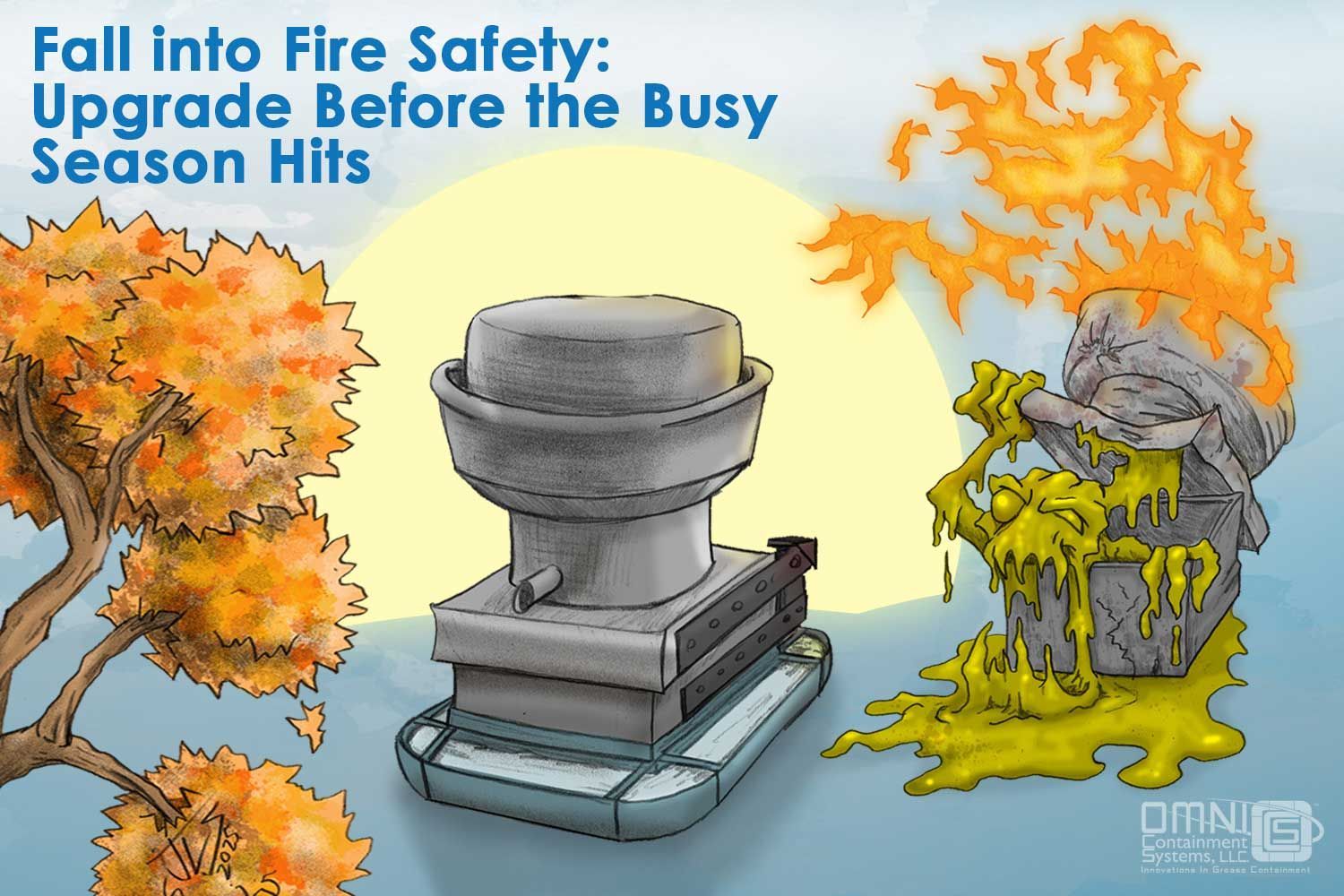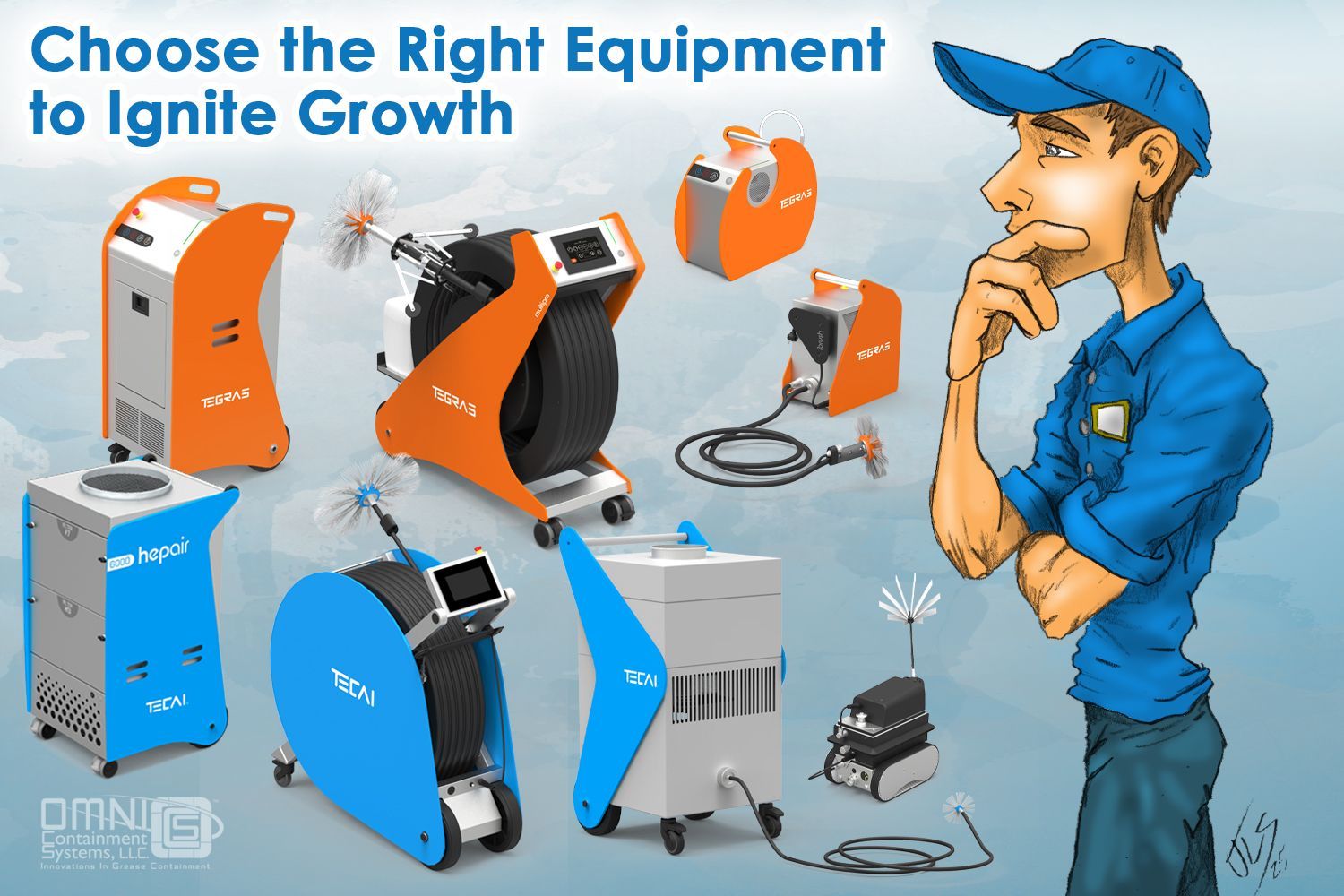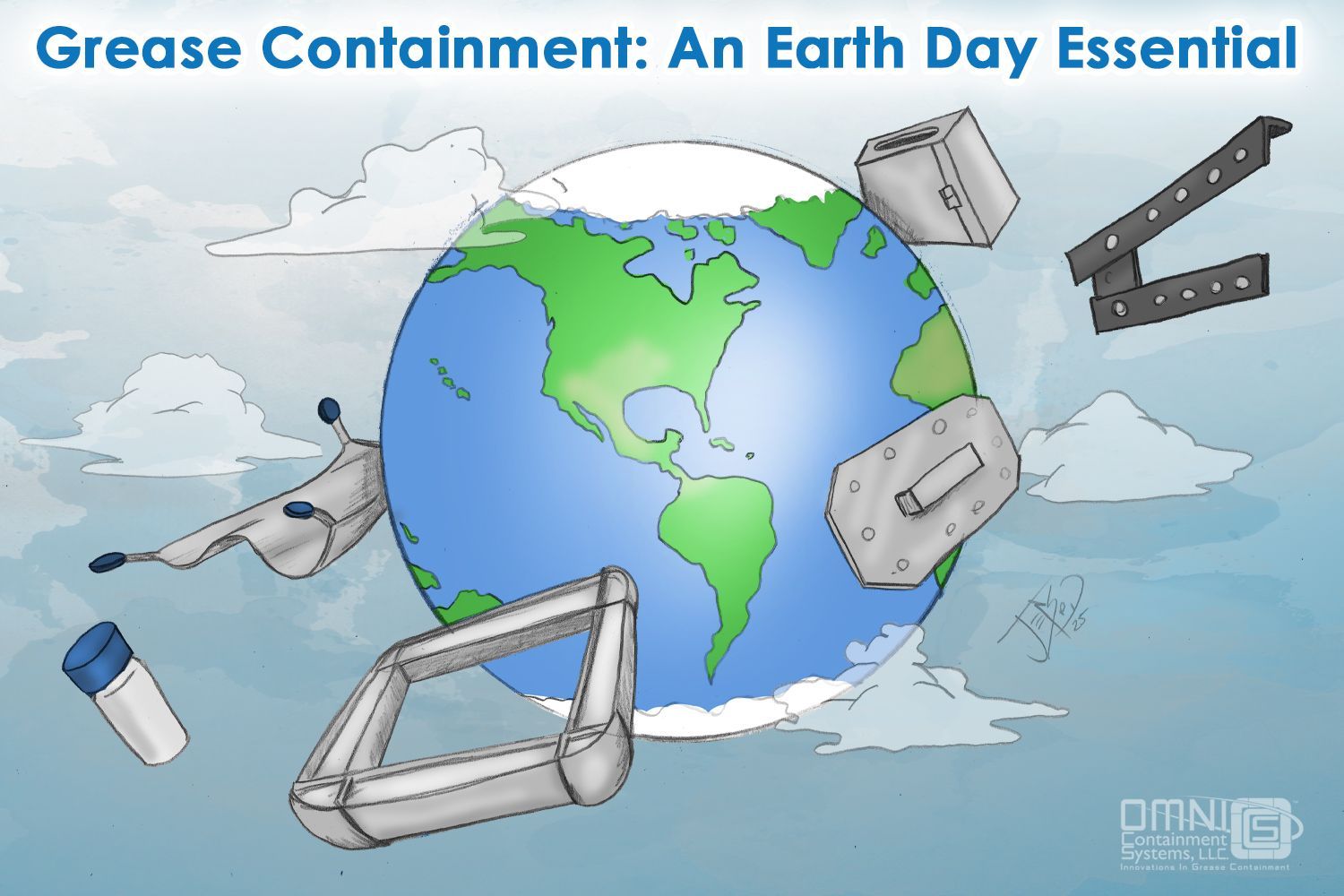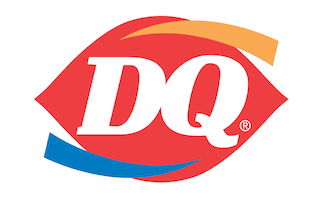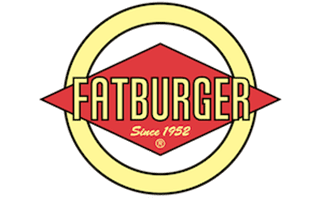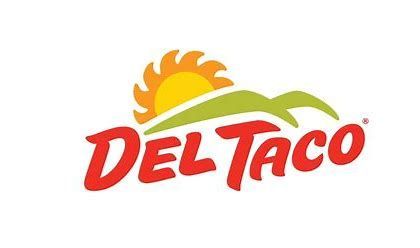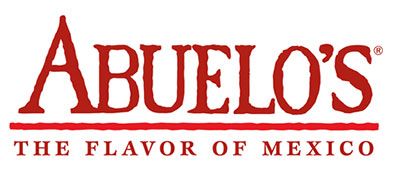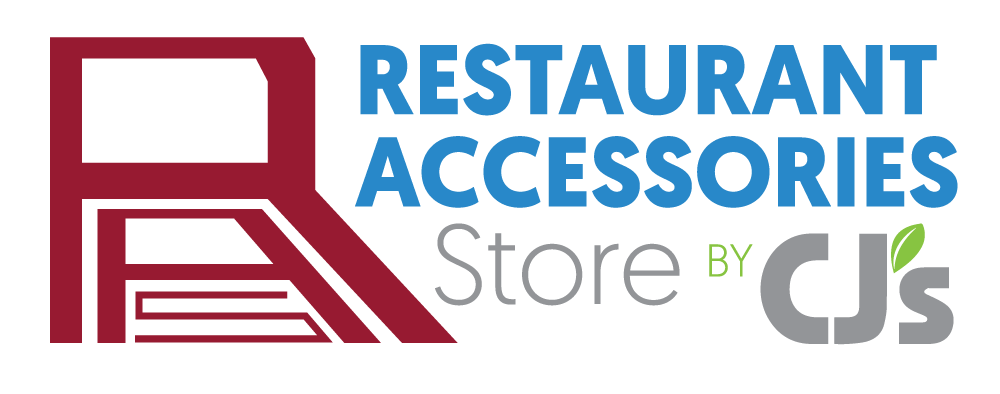
Don't Feed the Fire: October's Guide to Grease Safety
As spooky season creeps in, many restaurant owners are busy planning seasonal menus and Halloween promotions, but lurking in the shadows is a risk far scarier than ghosts and goblins: kitchen exhaust fires.
According to the National Fire Protection Association (NFPA), most restaurant fires start on cooking appliances and quickly travel into neglected or poorly maintained kitchen exhaust systems. These fires destroy more than just property, they threaten lives, reputations, and entire businesses.
That’s why October, Fire Prevention Month, is the perfect time to shine a light on fire safety, especially in your kitchen exhaust system. At
Omni Containment Systems, we’ve seen firsthand what can happen when fire prevention gets overlooked—and we’re here to make sure you’re protected.
What Makes Kitchen Exhaust Systems So Vulnerable?
Restaurants contain all the perfect ingredients for a fire: open flames, hot equipment, grease vapors, cooking oils, paper products, and electrical connections. When these factors combine inside a poorly maintained exhaust system, they create a high-risk environment for fire ignition and spread.
Over time, even in the most careful kitchens, grease builds up inside ducts, fans, and filters. Without regular cleanings, inspections, and compliant equipment in place, that buildup becomes fuel, and the ductwork becomes a dangerous highway for fire to spread to your roof.
It doesn’t take much. A spark from a cooktop, an electrical short, or even heat from a busy dinner rush can ignite a fire that quickly reaches ductwork and moves to the roof before it’s detected.
Spooky Situations We've Seen (And Helped Prevent)
At Omni, we’ve worked with countless restaurants to help prevent, or recover from, serious rooftop hazards. Here are just a few of the most hair-raising scenarios we've encountered:
The Blob

Much like the old horror film, this massive grease overflow was consuming everything in its path. It had soaked into the rooftop membrane and was spilling toward the gutter, creating an environmental hazard and fire risk. All because a filter wasn’t changed on time.
The Grease Pit

In this case, neglected grease containment led to pooling on the roof. With each rainstorm, the grease was washing into storm drains and surrounding terrain, which violated EPA guidelines and posed a serious environmental threat—not to mention the fire danger.
The Guillotine

This was a rooftop fan held open by a simple chain instead of a proper hinge. One gust of wind or vibration could’ve sent the fan crashing down on a technician, or tearing up the roof. It was a disaster waiting to happen.
The good news? All of these situations were preventable, and with the right systems in place, they were fixed for good. Solutions like our Super Hinge, Roof Guardian, and Sidekick make rooftop safety simple and code-compliant.
Why NFPA 96 Compliance Matters More Than Ever
The NFPA 96 Fire Code exists for a reason: to prevent these exact types of fires and injuries.
Among the key requirements are:
NFPA 96 7.8.2.1: Upblast fans must have hinges, flexible weatherproof cable, and a service hold-open retainer.
NFPA 96 8.1.2.1: Fans with motors in the airstream must be hinged and listed for commercial use.
These rules aren’t just boxes to check. They protect your business, your employees, your equipment, and your roof.
Using the right hinge eliminates the need to lift and place fans on the roof for cleaning, reducing the risk of injuries, fan damage, and roof punctures. Omni’s Super Hinge exceeds NFPA standards and includes the patented hold-open retainer required by code.
Fire Prevention Tips for Restaurant Owners
If you're wondering how to get ahead of fire risk, here are key steps to take this fall:
- Schedule professional cleanings with certified kitchen exhaust cleaners
- Install NFPA-compliant hinge kits on all upblast fans
- Use a grease containment system
- Ensure access panels are installed every 12 feet per NFPA 96 standards
- Check for grease buildup using tools like the Grease Comb
- Maintain inspection records and certificates of performance
- Review equipment with your AHJ (Authority Having Jurisdiction) to ensure ongoing compliance
When in doubt, contact Omni. We can help you assess your system and recommend what’s missing.
Don’t Let Fire Catch You Off Guard
Too often, restaurant owners don’t think about their rooftop until something goes wrong. But by then, it’s too late, and the damage can be devastating. Grease fires can shut down operations, destroy expensive equipment, and put lives
in danger.
That’s why fire prevention isn’t just a compliance issue, it’s a culture. It’s a commitment to safety, routine maintenance, and having the right equipment in place before you ever need it.
Whether you're a national chain or a single-location restaurant, one fire is all it takes to lose what you've built. But the right hinge, filter, or containment system can make all the difference.
Be Proactive. Be Prepared. Be Protected.
At
Omni Containment Systems, our mission is to make rooftop fire safety easy, effective, and accessible for every kitchen exhaust system. We’ve designed our products to solve real-world problems and keep your team protected.
Share This Blog Post!
